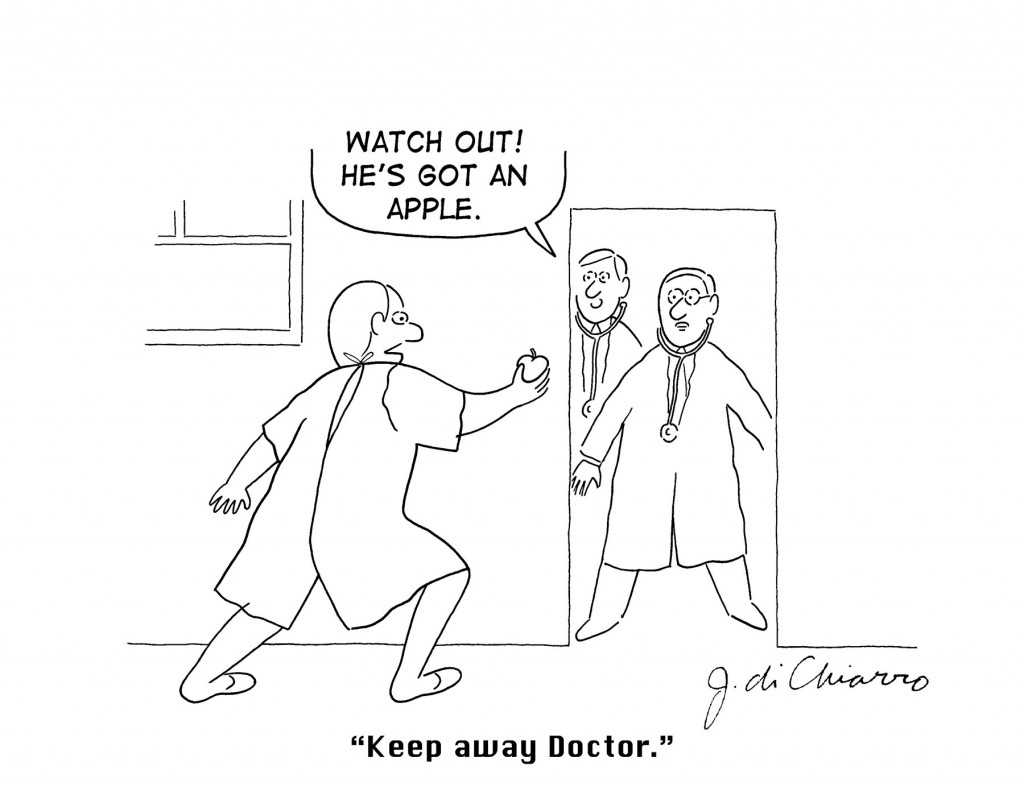Plums…delicious, sweet. And, good for bone health?
[Image: all rights reserved 2012. Used with permission by Tartella. Visit them online at http://www.tartella.com/ and if you love this print as much as I do, you can purchase it in their Etsy store.]
Yowza! I am excited about study findings published in the British Journal of Nutrition linking dried plums (better known as the lowly prune) to improved bone mineral density in menopausal women. If these findings ring true and can be duplicated in larger groups of women, they may have a tremendous impact on the steps we take to preserve our bones as we age — most notably, the ability to avoid bisphosphonates — which have been linked to collapse of jaw bones and even an increase in the fractures they are supposed to protect. Moreover, although calcium supplementation is broadly recommended, there is an indication that it may increase heart disease risk in some women.
However, as one of the investigators note in BJN, study findings consistently show that greater intakes of fruits and vegetables have positive effects on bone resorption (the breakdown of bone), adding prunes among fruits and onions among vegetables, to be the most effective functional foods in terms of their actions on modulating the process by which bones break down and build up again.
In animal studies, prunes were shown to prevent bone loss as well as restore bone mineral density in conditions created to mimic bone loss associated with osteoporosis. In addition to these studies, researchers had also a conducted a short, three-month study in menopausal women in whom bone mass was improved simply by eating around 10 prunes (100 g) daily.
In this latest iteration, the same researchers compared two groups of menopausal women assigned to eat around 100 gm of prunes (~10) or 75 gm dried apples (the equivalent of the prunes in terms of energy, carbohydrates, fats and fiber) daily for a year. All of the women had been in menopause for anywhere from one to 10 years, were not on hormone therapy and were also asked to take 500 mg calcium plus 400 IU vitamin D with their daily dried fruit.
The findings? By the end of one year, women eating prunes had significantly lower levels of several markers for bone turnover compared to their peers who ate dried apple. Conversely, the prune eaters had significantly higher levels of bone mineral density in their ulnas (one of two long bones in the forearm) and spine compared to the other group. The researchers say that this is partly due to the fact that prunes suppress the rate at which bone cells break down bone, which exceeds the rate at which they build it up as we age.
Women in particular lose up to 50% of their spongy, or trabecular bone (the network that makes up most of bone structure) and up to 30% of their cortical bone (the outer shell) within the first 10 years of the onset of menopause. Of the investigators, Professor and chair of Florida State University’s Department of Nutrition, Bahram Arjmandi, suggests that women (and men) interested in maintaining or even improving bone health start eating two to three prunes a day and gradually build to six to 10. Arjmandi says to “do something meaningful and practical beforehand, ” and “don’t wait until you get a fracture or are diagnosed with osteoporosis” and need medication.
Sure, prunes get a bad rap. But aren’t ‘bad’ bones even worse? Truly, prunes can be ‘as delicious and sweet’ as plums. The writing on the wall suggests that you don’t wait until it’s too late.
Read More
An apple a day…
Do you recall last year’s post on the beneficial effects of dried plums (aka prunes) on bone health? Well, it appears that dried plums are not the only functional fruit in town. In fact, eating just 2.6 ounces of dried apple daily may protect your heart after menopause.
In this study (published in the August issue of the Journal of The Academy of Nutrition and Dietetics) researchers asked 160 postmenopausal women to eat dried apple or the nutritional equivalent (in terms of calories, fat, carbs, fiber and protein) of dried plums — 3.5 oz — daily for a year. At various time points during the study, levels of blood fats and cholesterol, physical activity and diet were measured. However, the women were asked to avoid taking any steps towards further altering their diets. None of them were on hormone therapy or taking cholesterol lowering drugs during and at least three months before the trial.
The findings are striking. Not only did women who ate dried apple drop 3 pounds, but by three months, their total cholesterol levels had decreased by 9% and LDL-cholesterol levels by 16%. By 6 months, these improvements increased to 13% and 24%, respectively. Moreover, the ratio of HDL to LDL cholesterol improved and C-reactive protein (a protein in the blood that responds to increases in inflammation) declined by 32 %. Women who ate dried plums also experienced improvements in these markers but not to the same dramatic extent.
Eating apples have been linked to improvements in body weight, blood fats, inflammation and other factors that contribute to heart disease. When dried, they are rich sources of soluble fiber and pectin and even suppress food intake, thereby leading to weight loss. Apples are also an excellent source of polyphenols — antioxidant-rich chemicals — that have also been shown to lowering heart disease risk.
Heart disease is a major problem in women and especially after menopause. There are numerous posts within Flashfree that explain the numerous factors that contribute to risk, including elevated cholesterol levels and weight gain. Dried apples represent a cost-saving alternative to statin drugs, which are frequently used to treated high cholesterol while also increasing the risk for muscle weakness and liver damage. Moreover, statins contribute to more than 3% of the total costs of heart disease in the U.S., which is pretty striking.
An apple a day? Sound advice, indeed!
Read More








